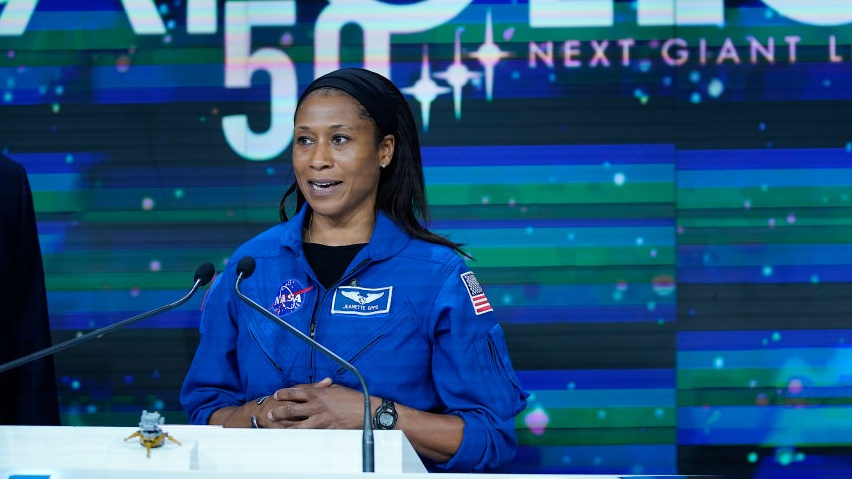NASA astronaut Jeanette Epps will make history next year when she becomes the first Black woman to live aboard the International Space Station for an extended period of time.
The agency made the announcement last week, saying Epps has been assigned to NASA’s Boeing Starliner-1 mission.
Epps will join astronauts Sunita Williams and Josh Cassada during the six-month expedition, leading the first operational flight of Boeing’s CST-100 Starliner spacecraft to the ISS, NASA announced.
NEWS: We assigned @Astro_Jeanette to NASA’s Boeing Starliner-1 mission, the first operational @BoeingSpace mission with @Astro_Josh and @Astro_Suni. Jeanette is a fantastic addition to the Starliner-1 team as we continue to #LaunchAmerica: https://t.co/2BzBhEJcBx
pic.twitter.com/Ohq1lSB7eH— Jim Bridenstine (@JimBridenstine) August 25, 2020
“Jeanette Epps is the natural addition to NASA’s Boeing Starliner-1 mission,” Kathy Lueders, associate administrator for human exploration and operations at NASA headquarters, told CNBC. “She fully complements the other members of the first Boeing full duration crewed mission.”
Epps expressed her excitement about working on the 2021 mission with her fellow astronauts.
"They are both wonderful people to work with, so I'm looking forward to the mission," she said in a video on Twitter.
Thank you @JimBridenstine! I’m looking forward to the mission.???????? https://t.co/h2xIJMK1Ef
pic.twitter.com/cSRf1SE4cr— Jeanette J. Epps (@Astro_Jeanette) August 25, 2020
According to NASA, Epps received her bachelor’s degree in physics from LeMoyne College in Syracuse and obtained her master’s degree in science from the University of Maryland, College Park. She also earned a doctorate in aerospace engineering in 2000 from the same institution.
The astronaut worked as a NASA Graduate Student Researchers Project fellow while earning her doctorate. She then worked in a research laboratory and co-authored several patents before joining the Central Intelligence Agency, where she spent seven years.
According to USA Today, Epps was scheduled to fly on the Russian Soyuz rocket to the ISS two years ago. However, she lost the opportunity when NASA replaced her with another astronaut.
"It felt like a huge amount of responsibility. There have been three African Americans who have visited ISS, but they haven’t done the long-duration mission that I am undertaking," Epps told The Cut in 2017 before she was pulled from the mission. "As a steward, I want to do well with this honor. I want to make sure that young people know that this didn’t happen overnight."
The astronaut's brother, Henry Epps, accused NASA for racism after seeing his sister being replaced, CNBC reported. The agency denounced the accusation.
According to the Verge, NASA said there were multiple "factors" which led to the reversal of course.
"A number of factors are considered when making flight assignments,” Brandi Dean, a spokesperson for NASA, said. “These decisions are personnel matters for which NASA doesn’t provide information.”
Fast forward to today, not only will Epps be making history, fellow astronaut Victor Glover is also set to mark a monumental moment. Glover will become the first Black man to visit space for an extended time when he joins a six-month ISS mission later this year.
Six other Black Americans have visited the space station, but Epps and Glover will become the first to embark on an extended mission, according to NASA. Epps, who became a member of the 2009 astronaut class, will be making her first spaceflight when the mission launches sometime next year.
NASA said it's working to "understand and overcome the challenges of long-duration spaceflight."
"As commercial companies focus on providing human transportation services to and from low-Earth orbit, NASA will concentrate its focus on building spacecraft and rockets for deep-space missions," the agency stated.
